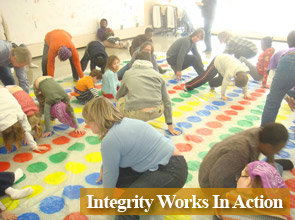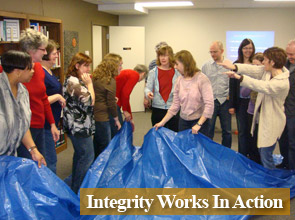Interesting question isn’t it, and don’t tell me you’ve never asked it before. Think for a moment. Ask yourself, “Have you really changed over the years?”
Chances are you’ll say something like, “Yes, in some ways, but not in others.” Now ask yourself, “How many people do you know who have really changed over the time that you’ve known them?” Chances are you won’t think of many. I’ve noticed over my years of consulting that people are far more likely to credit themselves with the ability to change than they are others.
Of course, for some, not changing is considered a sign of strength. Staying constant shows stability and reliability. Why make unnecessary changes? Perhaps it’s an expectation we have living in a world where truisms like, “Change is inevitable” and “Change is constant” abound. We’re expected to be able to adapt, learn, grow, and at times, we’re expected to be able to eliminate unwanted habits and behaviours and replace them with more desired ones. So maybe the question should be, “How many people do you know who have changed after saying that they needed or wanted to?”
The question of whether people can change is an important one in relationships and in the workplace. Performance appraisals and evaluations would be rather pointless if people weren’t able to make use of the feedback that they were given. Of course, there are people who do claim that these exercises are pointless, and that the trick is to get the right people straight away rather than wasting time attempting to force square pegs into round holes.
The question regarding the possibility of change is complicated by the fact that people argue over what constitutes real change. Is a change in behaviour a significant change, or are changes in thinking and even personality what’s needed to qualify for “real” change. After all, people do seem to fall back into old habits, especially when they’re trying to change for somebody else. How long does a change have to last in order to count as a change?
Sufficient self-help and motivational instruction books have been written about this topic to denude half the world’s rainforests. Enough already! I’m going to answer the question once and for all. Think of it as my contribution to end Global Warming.
YES, people can change, BUT only some of them and only some of the time. From my experience, there are 10 key factors required for people to change. The more any of these factors are missing, the less likely it will be for change to happen. In order to change people must:
1) Be aware of the need for change
2) Want to change
3) Possess a sense of curiosity
4) Have the ability to self-reflect and be self-aware
5) Be open to feedback (the absence of defensiveness)
6) Know what specifically needs to change and what will replace it
7) Understand how to change
8) Receive constructive feedback throughout the change process
9) Be given emotional support and encouragement throughout the change process
10) Gain some kind of personal reward (reinforcement) from having changed
If all, or at least most, of those factors are in place for people, change is indeed possible. The longer the change lasts, the greater the likelihood of the change becoming a part of who they are, and then they won’t have to keep concentrating on maintaining it. But you can see from reading this list why change can be so difficult to achieve.
The two factors of them all that seem critical to the capacity to change is the presence of a sense of curiosity and the ability to self-reflect and be self-aware. Some people have an innate curiosity about the world and that greatly aids them in making changes. It could be argued that generally we all start off being curious and then many of us seem to lose it, but once lost, curiosity seems very hard to retrieve. And I strongly recommend managers include job interview questions which invite candidates to share times when they’ve thought about their thoughts and made a belief change or a change in their way of thinking. Self-aware and self-reflective people are for more likely to be able to adapt and make tough personal changes.
An Executive friend of mine claims that only 10% of people are capable of real change. He figures it’s much better to find out what his people are good at and have them focus on that, rather than waste time and resources trying to change them into something they’re not. That’s a good strategy especially if you have the Human Resources available to fill in the gaps, but perhaps not always possible.
If it’s critical to you that a person you’re relating with make some changes in order for the relationship to work, (either professionally or personally) think of all the factors that need to be present for change to occur. Consider the advice of my friend, and the possibility that you need to accept that the person you’re dealing with may not be a good fit, or perhaps is a great fit in a role with different expectations.
On the other hand, knowing and applying the requirements for change can make it much easier for people to create the changes they want (if that’s truly what they want).
Theo Selles, M.Sc.
President, Integrity Works
647-686-0116












